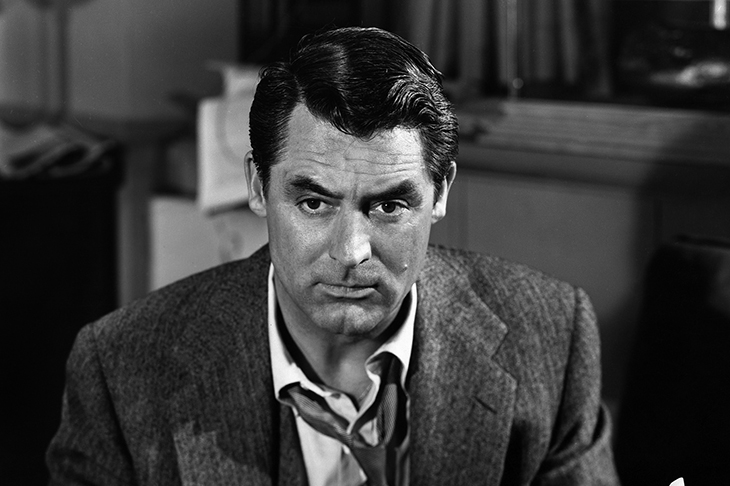Cary Grant was a hoax so sublime his creator struggled to escape him. He was a metaphor, too, for the transformative magic of cinema, for its lies; and for the artifice and social mobility of the 20th century itself.
His real name was Archie Leach, and he could, the critic David Thomson wrote, ‘be attractive and unattractive simultaneously; there is a light and dark side to him, but whichever is dominant, the other creeps into view’. Thomson thinks Grant the greatest film actor — I did not notice him in his first scene in The Philadelphia Story until he wanted me to notice him — but he was terrified of self-exposure and rejected Lolita, A Star is Born and The Third Man for schlock such as Night and Day, a life of Cole Porter that omitted Porter’s homosexuality. Orson Welles quipped: ‘What will they use for a climax? The only suspense is — will he or won’t he accumulate ten million dollars?’
Two new biographies tell the story — Cary Grant: The Making of a Hollywood Legend by Mark Glancy and Cary Grant: A Brilliant Disguise by Scott Eyman. Glancy is studious, respectful and unwieldy (who needs to know the plot of Operation Petticoat?). Eyman is more lyrical and insightful.
Cary freed his mother from the mental hospital and supported her, but she always treated him as an impostor
Both understand that Cary Grant existed for two contradictory reasons: for Archie to be loved by his mother Elsie and, also, to escape her, because she was not capable of love. Grant was the ever-receding man, and more desirable for his elusiveness, for the viewer can project what he or she desires. In his famous roles — The Philadelphia Story, Bringing Up Baby, Arsenic and Old Lace — he is tender, sorry, emollient; the one who likes women (probably the only one; even James Stewart made Donna Reed cry in It’s a Wonderful Life); the one who says, ‘What do you want me to be?’ — and to her.








Comments
Join the debate for just £1 a month
Be part of the conversation with other Spectator readers by getting your first three months for £3.
UNLOCK ACCESS Just £1 a monthAlready a subscriber? Log in